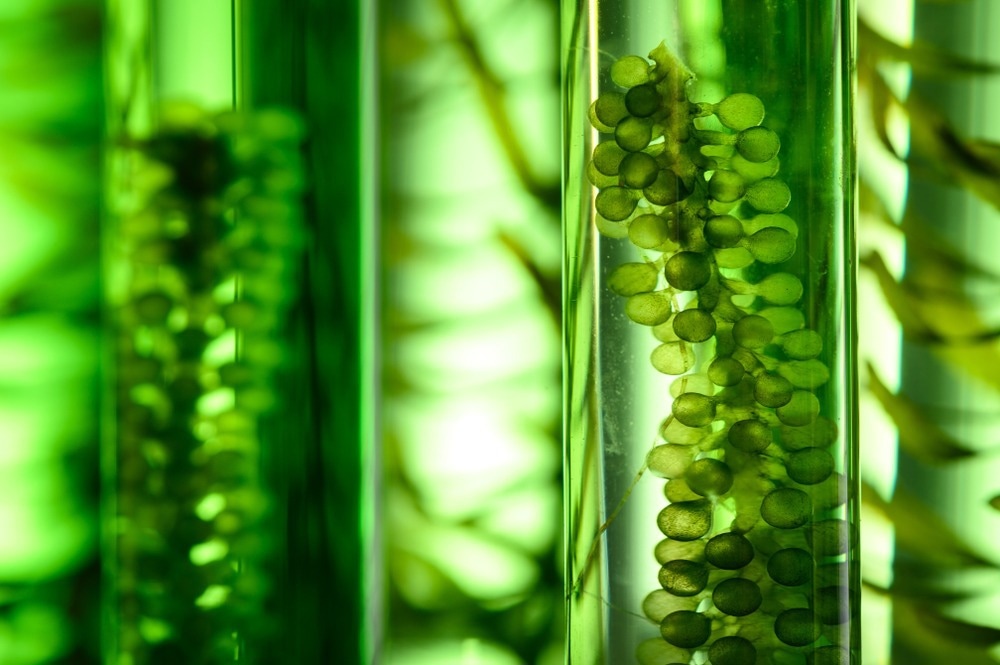Analytical chemistry is an important tool for analyzing various sample types and determining the composition and structure of the matter. Many fields of science rely on this technique. Here, we describe how it works, and in particular, we focus on the importance of employing sustainability in this field. We look at how it is used in life sciences, who are the main players, and what are the advantages and disadvantages of the technique.

Image Credit: petrmalinak/Shutterstock.com
What is analytical chemistry, and how does it work?
Analytical chemistry is a scientific field focused on identifying, characterizing, and quantifying substances and materials' physical and chemical properties. It encompasses techniques and methods used to determine substances' composition, structure, and behavior in both qualitative and quantitative terms. Analytical chemists use a diverse range of tools, such as spectrometers, chromatographs, and electrochemical instruments, to perform measurements and interpret data.
The analytical chemistry method involves a series of steps to identify, quantify, and analyze the chemical components in a sample of interest. The first step is sample collection, followed by sample preparation to isolate the analytes of interest, which various techniques, including extraction, digestion, filtration, or separation, can do. Next, scientists select instrumentation appropriate for the analysis of the sample. Techniques used in analytical chemistry include spectroscopy, chromatography, mass spectrometry, and electrochemistry, among others.
Calibration follows, where scientists calibrate the selected instrumentation to ensure accurate sample analysis. Once completed, the sample is analyzed using the selected instrumentation. The data collected via this analysis is then interpreted to determine the concentrations of the analytes in the sample. Finally, quality control checks are carried out to ensure the analytical results are accurate and reliable.
What is green analytical chemistry, and why is this important?
Green analytical chemistry is a discipline that has evolved from traditional analytical chemistry that focuses on developing methods and techniques that are environmentally friendly and sustainable. Green analytical chemistry aims to minimize the impact of analytical practices on the environment via several methods, such as reducing or eliminating the use of hazardous chemicals, conserving energy and resources, and generating less waste. This field emphasizes the principles of green chemistry, which involves designing chemicals and processes that are safer, less toxic, and more efficient.
Applications of green analytical chemistry in the life sciences
There are several applications of green analytical chemistry in life sciences. First, it is used in drug discovery and development, where green analytical techniques are used to identify and purify compounds for drug development. It is also used in environmental monitoring to monitor pollutants in the environment. Food and beverage analysis also utilizes green analytical methods to analyze products for quality control and safety. Green analytical techniques are also popular in forensic science, where they are used to analyze evidence. Finally, the emerging field of personalized medicine utilizes green analytical methods to develop new personalized medicine approaches and targeted drug therapies.
Pros and cons of green analytical chemistry
A wealth of benefits are associated with using green analytical chemistry due to the environmental considerations of the techniques used in this field. First, green analytical chemistry has a reduced environmental impact compared to other analytical methods. It focuses on reducing chemical processes' environmental impact, making them more sustainable and eco-friendly by using renewable resources and reducing waste. Improved worker safety is also associated with green analytical chemistry processes as they reduce the risk of exposure to harmful chemicals.
Green analytical chemistry also promotes the use of simpler, more efficient, and cost-effective analytical methods, leading to reduced costs in comparison with other analytical methods. Analytical performance can also be enhanced by green analytical chemistry thanks to the use of high-performance analytical techniques that offer better sensitivity, accuracy, and precision. Finally, green analytical chemistry helps organizations comply with environmental and safety regulations by providing a framework for sustainable analytical practices. Therefore, it helps to enhance regulatory compliance.
The drawbacks of green analytical chemistry techniques are limited. The main disadvantage of using green analytical chemistry is its limited compatibility with certain types of samples. Some complex mixtures are unsuitable for analysis with green solvents, which somewhat limits the application of the technique.

Image Credit: Chokniti-Studio/Shutterstock.com
Major players in the green analytical chemistry
Many companies are large and small in the current green analytical chemistry market. Some of them specialize in producing instruments, such as Metrohm, Shimadzu, Thermo Fisher Scientific, and Waters. While others specialize in producing green chemicals, including Arkema Group, BASF SE, Evonik Industries AG, GFBiochemicals Ltd., Koninklijke DSM N.V., Mitsubishi Chemical Corporation, Plantic Technologies Limited, Toray Industries Inc., Total Corbion PLA, and Vertec BioSolvents Inc.
The future of sustainability in analytical chemistry
The green analytical chemistry sector is growing, and research is widening its use across the life sciences and other sectors. In the future, we can expect future developments in this field to further reduce the environmental impact of analytical chemistry, making it more sustainable.
Further Reading
Last Updated: May 18, 2023